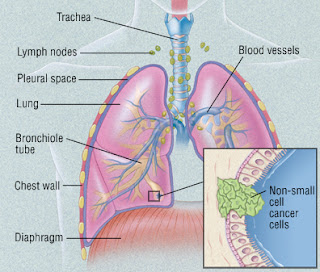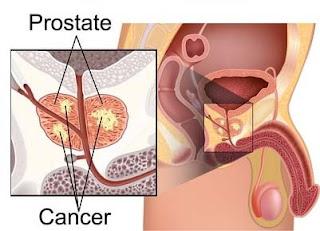
Major Risk Factor For Non-Small Cell Lung Cancer Non-small cell lung cancer (NSCLC) is the most common type of #lungcancer. It usually grows and spreads more slowly than small cell lung cancer . Each type of non-small cell lung cancer has different kinds of cancer cells. The cancer cells of each type grow and spread in different ways. There are 3 common types of NSCLC: Squamous cell carcinoma : Cancer that begins in squamous cells, which are thin, flat cells that look like fish scales. This is also called epidermoid carcinoma. Large cell carcinoma : Cancer that may begin in several types of large cells. Adenocarcinoma : Cancer that begins in the cells that line the alveoli and make substances such as mucus. Smoking is the major risk factor for non-small cell lung cancer Anything that increases your chance of getting a disease is called a risk factor. Having a risk factor does not mean that you will get cancer; not having risk factors doesn't mean that

